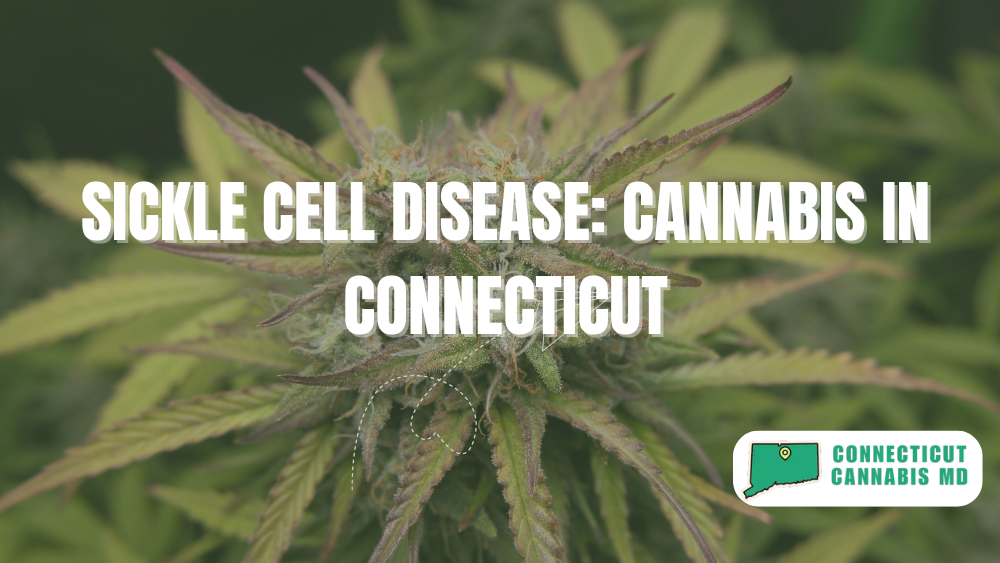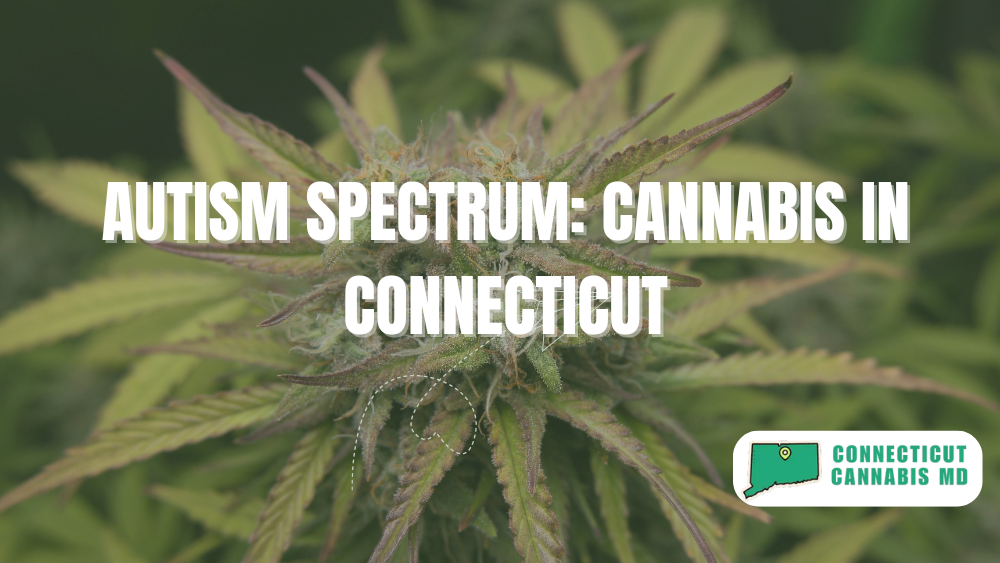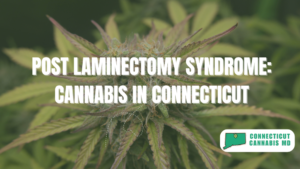Sickle cell disease (SCD) is a genetic blood disorder that primarily affects red blood cells. Due to the abnormal shape of these cells, individuals with SCD experience painful episodes called “sickle cell crises,” along with chronic pain, fatigue, and organ damage.
Traditional pain management for SCD has relied heavily on opioids, which come with risks of addiction, tolerance, and long-term side effects.
In Connecticut, medical cannabis has emerged as an alternative treatment for managing the chronic pain associated with SCD, offering patients a safer, natural option to improve their quality of life.
How Cannabis Helps Sickle Cell Patients
The Endocannabinoid System and Pain Relief
The endocannabinoid system (ECS) plays a vital role in regulating pain, inflammation, and the body’s response to stress. For sickle cell patients, the abnormal red blood cells can block blood flow, leading to pain and inflammation.
Cannabis interacts with the ECS to help reduce these symptoms by binding to cannabinoid receptors, decreasing pain sensitivity, and reducing inflammation.
Several studies have suggested that cannabinoids such as THC and CBD can alleviate chronic pain by modulating the ECS. For SCD patients, this means fewer painful episodes and a reduction in the need for high-dose opioids.
Cannabinoids for Sickle Cell Pain Relief
- CBD (Cannabidiol): CBD is a non-psychoactive compound known for its anti-inflammatory and analgesic effects. For SCD patients, CBD can help relieve pain without causing the “high” associated with THC, making it ideal for daily use.
- THC (Tetrahydrocannabinol): THC, the psychoactive component of cannabis, is highly effective in managing acute pain and reducing nausea or anxiety. However, its psychoactive effects mean that patients need to start with low doses and gradually increase as needed to avoid adverse effects.
Medical Cannabis for Sickle Cell Disease in Connecticut
How to Get a Medical Marijuana Card
In Connecticut, SCD patients can legally access medical cannabis by obtaining a medical marijuana card. This requires certification from a healthcare provider who determines whether cannabis is an appropriate treatment for your condition. Fortunately, this process can be completed online through a telemedicine consultation.
The cost for new patients to obtain a medical marijuana recommendation via telemedicine is $179, and for yearly renewals, it costs $149. After being certified by your provider, you can submit your application online and receive your medical marijuana card, which grants access to licensed dispensaries throughout Connecticut.
The Benefits of Telemedicine Consultations
Telemedicine allows SCD patients to connect with certified healthcare providers from the comfort of their homes. This is particularly valuable for individuals managing chronic pain, as they can avoid the stress and discomfort of traveling to in-person appointments.
By simply scheduling an online consultation, patients can get certified and start using medical cannabis to manage their symptoms.
Choosing the Right Cannabis Products for Sickle Cell Disease
CBD Products for Daily Relief
CBD products are ideal for SCD patients seeking daily pain relief without the psychoactive effects of THC. Popular choices include:
- CBD Oils: These are easy to use and can provide long-lasting relief when taken sublingually.
- Topical Creams: CBD-infused creams can be applied directly to painful areas, offering localized relief for muscle and joint pain.
THC Products for Acute Pain and Sleep Issues
For severe pain episodes, THC-dominant products may be more effective. These include:
- THC Edibles: Gummies, capsules, and other edible products offer a slower onset of relief but can last for several hours, making them ideal for managing pain over a longer period.
- Inhalable THC Products: Vaporized cannabis or pre-rolls provide rapid relief for sudden pain but should be used with caution due to their immediate psychoactive effects.
Balanced CBD/THC Products
Many SCD patients find that a balanced combination of CBD and THC offers the best of both worlds. These products provide effective pain relief while minimizing the psychoactive effects of THC.
Integrating Cannabis with Traditional Sickle Cell Treatments
A Complementary Approach to Pain Management
Cannabis is not intended to replace traditional SCD treatments like blood transfusions, hydroxyurea, or other medications. Instead, it can be used as part of an integrated pain management plan.
By incorporating cannabis, patients may be able to reduce their reliance on opioids, improve their overall pain management, and experience fewer side effects.
Lifestyle Changes to Maximize Cannabis Benefits
In addition to using cannabis, sickle cell patients should consider lifestyle changes that can help manage their symptoms:
- Hydration: Staying hydrated can reduce the frequency of painful sickle cell crises
- Physical Therapy: Gentle exercise can improve circulation and reduce muscle pain.
- Nutrition: A balanced diet can help boost energy levels and support overall health.
Conclusion
For sickle cell disease patients in Connecticut, medical cannabis offers a promising alternative to traditional pain management methods.
By interacting with the endocannabinoid system, cannabis helps to alleviate chronic pain, reduce inflammation, and improve the overall quality of life. With telemedicine consultations priced at $179 for new patients and $149 for yearly renewals, accessing medical marijuana is more convenient and affordable than ever before.
If you’re struggling with the chronic pain of sickle cell disease, take the first step today by scheduling an online consultation with a certified healthcare provider. With your medical marijuana card, you can start exploring natural, effective pain relief.
FAQs
How does cannabis help manage sickle cell disease pain?
Cannabis interacts with the endocannabinoid system to reduce inflammation, manage pain, and alleviate the symptoms of sickle cell disease.
What is the cost of a marijuana recommendation for SCD patients?
New patients pay $179, while yearly renewals cost $149 via telemedicine consultations.
How do I apply for a medical marijuana card in Connecticut for sickle cell disease?
Consult with a certified healthcare provider online, submit your application, and receive your medical marijuana card.
What type of cannabis products are best for sickle cell disease?
CBD-dominant products are ideal for daily pain management, while THC-dominant products are useful for managing acute pain.
Can cannabis replace traditional SCD treatments?
No, cannabis is meant to complement traditional SCD treatments, helping to manage pain more effectively alongside other therapies.











